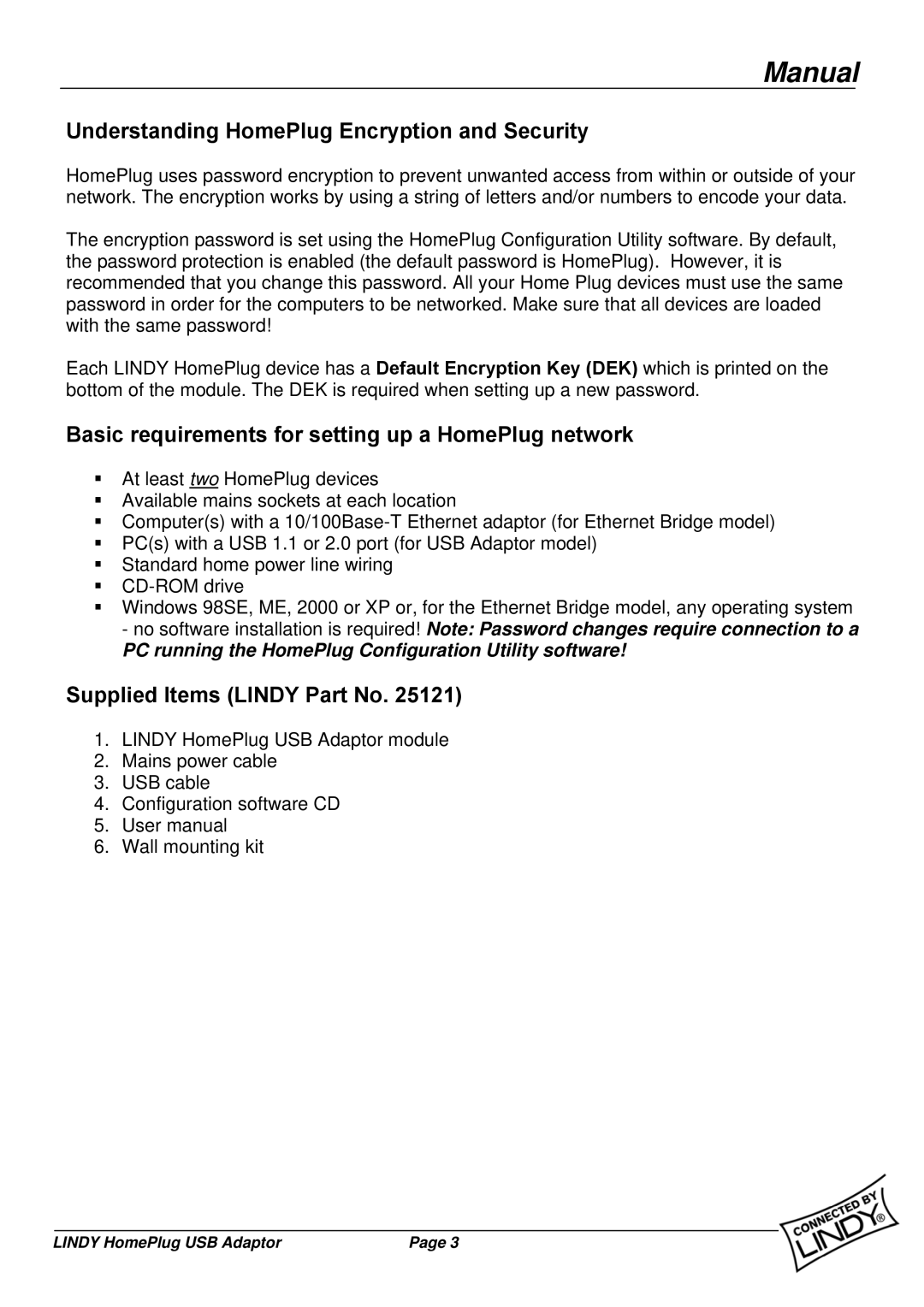
Manual
Understanding HomePlug Encryption and Security
HomePlug uses password encryption to prevent unwanted access from within or outside of your network. The encryption works by using a string of letters and/or numbers to encode your data.
The encryption password is set using the HomePlug Configuration Utility software. By default, the password protection is enabled (the default password is HomePlug). However, it is recommended that you change this password. All your Home Plug devices must use the same password in order for the computers to be networked. Make sure that all devices are loaded with the same password!
Each LINDY HomePlug device has a Default Encryption Key (DEK) which is printed on the bottom of the module. The DEK is required when setting up a new password.
Basic requirements for setting up a HomePlug network
At least two HomePlug devices
Available mains sockets at each location
Computer(s) with a
PC(s) with a USB 1.1 or 2.0 port (for USB Adaptor model)
Standard home power line wiring
Windows 98SE, ME, 2000 or XP or, for the Ethernet Bridge model, any operating system - no software installation is required! Note: Password changes require connection to a
PC running the HomePlug Configuration Utility software!
Supplied Items (LINDY Part No. 25121)
1.LINDY HomePlug USB Adaptor module
2.Mains power cable
3.USB cable
4.Configuration software CD
5.User manual
6.Wall mounting kit
LINDY HomePlug USB Adaptor | Page 3 |
